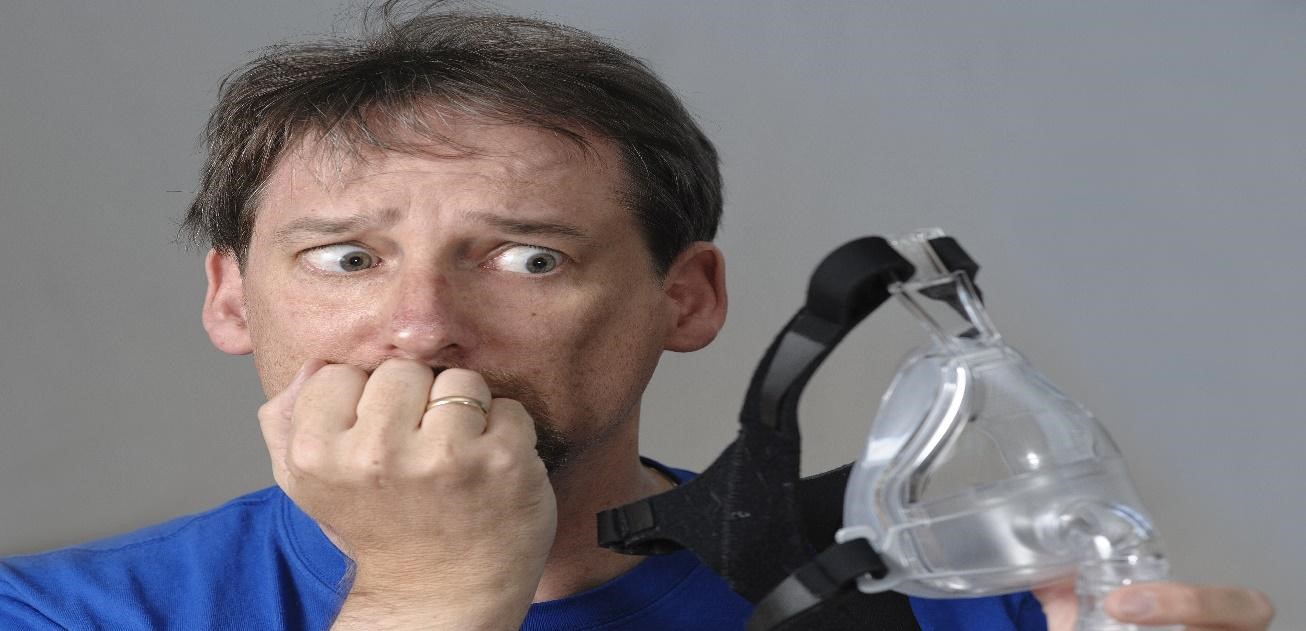Table of Contents
Common Problems with CPAP Therapy
Finding the correct mask and air pressure settings are crucial to successful CPAP treatment for sleep apnea.
Also significant is the regular use of the therapy; with consistent application, continuous positive airway pressure, or CPAP, can result in positive results as soon as the first night of application.

The trick to CPAP success depends on compliance. CPAP compliance is defined as employing your therapy a minimum of 4 hours a night, at least 5 nights a week.
If you do not attempt to use CPAP to minimum compliance, it cannot work for you. This is why finding the correct mask and the most accurate pressure setting are key to compliance.
Your durable medical equipment (DME) specialist exists to provide all the assistance you want to achieve the best results.
So… if the mask fits, wear it! You will experience possibly life-changing results if you do. But if it does not, it is possibly due to one of the following reasons.
I Struggle to Sleep
It can be challenging to fall asleep right away with PAP therapy, particularly when you were able to fall asleep easily before.
It takes the brain a little time to adjust to the addition of air pressure, and that means you might remain awake longer at first. But after 15 or 20 minutes, you should be able to fall into a calm breathing pattern, and your brain will correct and let you relax into sleep.
I Have a Dry, Stuffy Nose or Dry Mouth
This happens due to not using the humidification setting appropriately. Using warm, moist air can take care of most issues with dryness. All CPAP machines come equipped with these choices. If you are struggling to use the humidifier, ask your DME provider for assistance.
If you have dry mouth only, you may require to consider that you may be oral breathing. Breathing through your mouth as you sleep can lead to dry mouth and make your therapy less effective (breathing through the mouth “breaks” the pressure seal). Typically, chin support can help with this.
I Have Skin Irritation or Pressure Sores
 A few individuals do experience sensitivities to the materials the masks are made of, though this is rare. Many masks are made from hospital-grade, non-allergenic materials and are safe for even the most sensitive skin.
A few individuals do experience sensitivities to the materials the masks are made of, though this is rare. Many masks are made from hospital-grade, non-allergenic materials and are safe for even the most sensitive skin.
Most irritation comes from a poorly fitting mask, which means you might attempt a different style that better fits your face.
Tightening down the headgear can result in pressure sores as well. Masks should fit right on the surface of the face and should not fit tightly.
I Cannot Adjust to the Noise
Most CPAP devices are very quiet these days, so this is hardly a problem anymore. Possibly the only sound you might notice is your exhale, but even that sound will be rather soft.
Here’s a solution: Some persons run a “white noise” machine while they first use CPAP to help “scatter” sound, making it a part of the background so the brain can quiet itself and allow you to fall asleep.
Nevertheless, some people have found the sound of breathing through a CPAP mask to have a similar effect as a “white noise” equipment; it gives them something to focus on in a meditative way, which can lead to relaxation and sleep well.
What About My Companion?
Pressure from loved ones to leave CPAP is not unheard of from sleep apnea patients. Bed partners may complain about snoring but may not be happy that a CPAP device has become the solution.
They have to know that CPAP is a therapy meant to help you overcome chronic sleep-breathing problems, which set the stage for major illnesses such as diabetes, heart disease, and cancer; the dangers of untreated sleep apnea are too great to overlook.
As soon as they understand that the mask and machine are a therapy meant to save your life, they should come around.
It is recommended that family members and/or bed partners visit the sleep clinic with the patient to go over therapies; this keeps everybody on the same page regarding the reason for and compliant use of CPAP therapy.





 Shop
Shop



